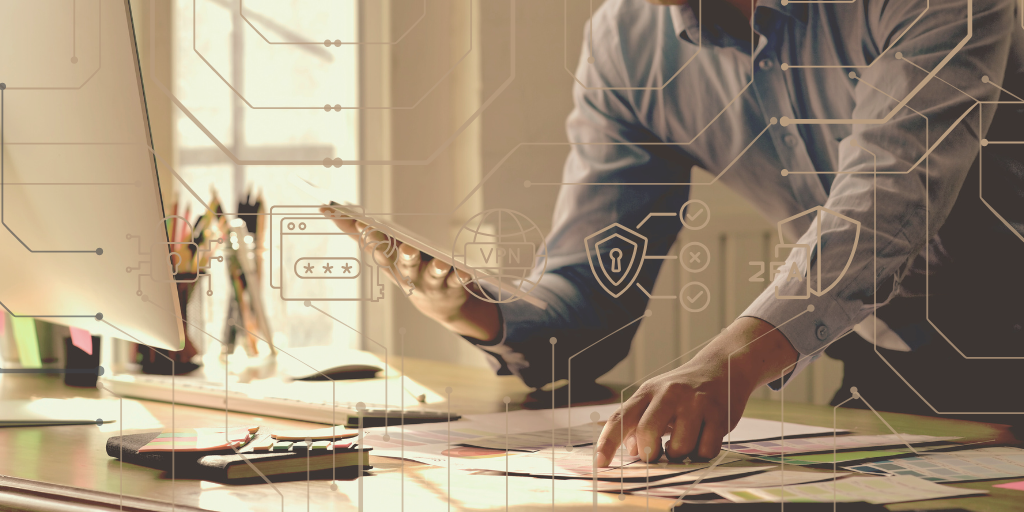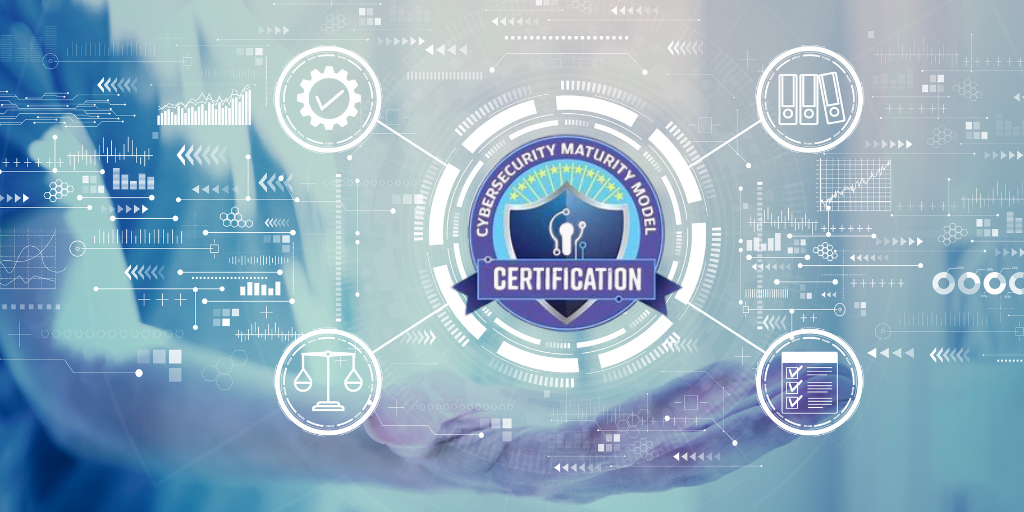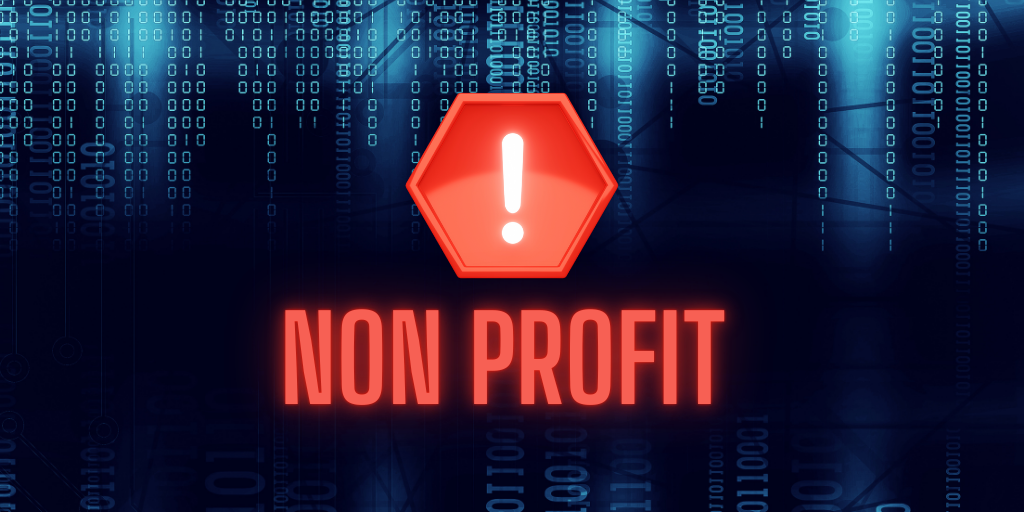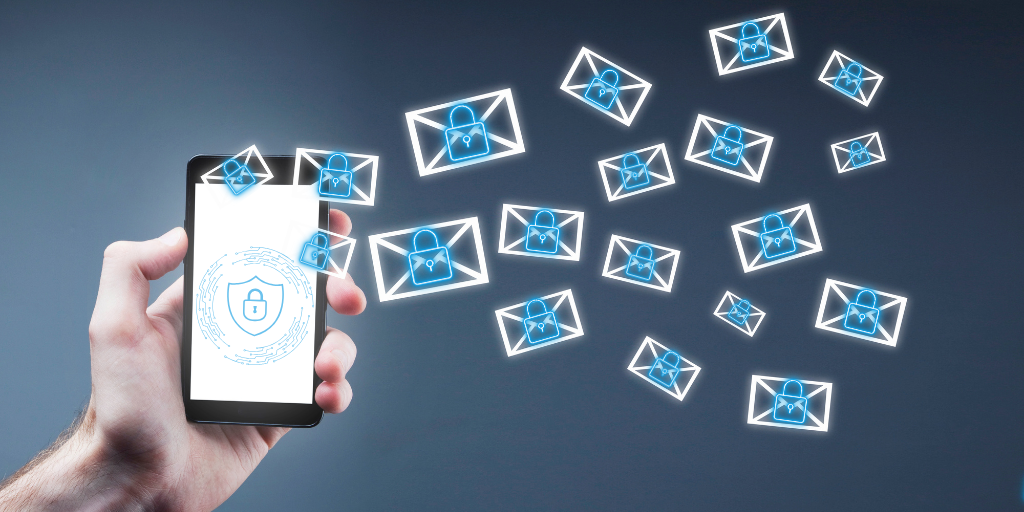Addressing CMMC Compliance Gaps for Small Businesses
Navigating the complex landscape of CMMC compliance can be a daunting task for small businesses, but with the right strategies, achieving and...
4 min read
.jpeg) Michael Markulec
:
Nov 11, 2024 12:14:13 PM
Michael Markulec
:
Nov 11, 2024 12:14:13 PM

In today's digital age, high-level executives in the financial services industry are prime targets for cyber attacks. Discover the top personal cybersecurity tools that can safeguard your sensitive information.
In our electronically connected world, executives are entrusted with handling a vast array of sensitive information, including confidential client data, proprietary company strategies, and financial records. This information is highly attractive to cybercriminals constantly seeking opportunities to exploit vulnerabilities for monetary gain or to cause disruption. As such, personal cybersecurity for these executives is not merely a matter of protecting oneself from potential threats; it is a critical component of safeguarding the entire company's integrity and the trust of its clients. The repercussions of a cybersecurity breach can be far-reaching, affecting the individual executive and the organization's reputation and financial stability.
Given the increasing sophistication and frequency of cyber threats, executives must prioritize personal cybersecurity measures to mitigate these risks effectively. Cybercriminals are employing more advanced techniques, making it essential for executives to stay ahead of potential threats. Even a seemingly minor security lapse, such as a weak password or an unsecured network connection, can lead to significant financial losses and irreparable reputational damage. Therefore, robust cybersecurity practices are essential to protect personal and corporate interests in this high-stakes environment.
Password managers are indispensable for executives, providing a robust solution for securely generating, storing, and managing complex passwords. In the fast-paced world of financial services, executives often juggle many accounts, each requiring a unique and strong password to protect sensitive information. A password manager not only ensures that each password is distinct and difficult to crack, but it also alleviates the burden of remembering numerous complex passwords, which can be daunting. By automating the process of password creation and storage, these tools significantly reduce the likelihood of human error, such as using weak or repetitive passwords, which are common vulnerabilities that cybercriminals exploit.
Using a reputable password manager is a proactive step in reducing the risk of password-related breaches. These tools employ advanced encryption techniques to safeguard your password database, ensuring that your passwords remain protected even if your device is compromised. Furthermore, password managers streamline maintaining and updating passwords, offering features such as automatic password updates and alerts for compromised accounts. This enhances overall security and saves valuable time, allowing executives to focus on their strategic responsibilities without the constant worry of potential security lapses. By integrating a password manager into their cybersecurity toolkit, executives can fortify their defenses against unauthorized access and bolster their personal and professional security posture.
Multi-factor authentication (MFA) is an additional security measure that enhances the traditional login process by requiring a password and username and a second form of verification only the user possesses. This second factor can take various forms, such as a physical token. This mobile app generates a time-sensitive code or biometric data like a fingerprint or facial recognition. By adding this extra layer of security, 2FA ensures that even if a cybercriminal manages to obtain your password, they would still be unable to access your account without the second factor.
Implementing MFA significantly reduces the likelihood of unauthorized access, providing a robust defense against potential breaches. This method is particularly effective because it combines something you know (your password) with something you have (the second factor), making it exponentially more difficult for attackers to infiltrate your accounts. It's a simple yet highly effective way to bolster your cybersecurity, offering peace of mind by safeguarding sensitive information and maintaining the integrity of your digital identity. In an era where cyber threats are increasingly sophisticated, adopting MFA is crucial in protecting personal and professional data from unauthorized access.
Virtual Private Networks (VPNs) are indispensable for executives who often access sensitive information over public or unsecured networks. In today's interconnected world, where remote work and constant travel are standard, the risk of data interception by cybercriminals is significantly heightened. VPNs work by encrypting your internet connection, creating a secure tunnel through which your data travels, making it exceedingly difficult for hackers to intercept or decipher your information. This encryption ensures that even if a cybercriminal attempts to eavesdrop on your online activities, the data they capture will be unreadable and useless.
A reliable VPN is essential for maintaining the privacy and security of your online activities, regardless of your location. Whether working from the comfort of your home, traveling for business, or connecting to a public Wi-Fi network at a café or airport, a VPN provides a robust shield against potential cyber threats. It masks your IP address, making your online presence anonymous and protecting your identity from prying eyes. Additionally, VPNs can bypass geographical restrictions, allowing you to access company resources and sensitive information anywhere securely. By integrating a VPN into your cybersecurity strategy, you can ensure that your digital footprint remains private and that your sensitive data is safeguarded against unauthorized access, thus maintaining the integrity of your professional and personal information.
Endpoint detection and response (EDR) software are foundational elements of personal cybersecurity, serving as a critical line of defense in the digital landscape. These sophisticated tools are designed to monitor and analyze activities across all endpoints, such as laptops, desktops, and mobile devices, providing comprehensive protection against cyber threats. EDR solutions are equipped to detect and respond to multiple malicious activities, including viruses, ransomware, spyware, and other forms of malware that can compromise sensitive information and disrupt operations. By continuously monitoring endpoint activities, EDR software can identify suspicious behavior patterns and potential threats in real-time, allowing swift intervention to prevent breaches.
In addition to EDR, regularly updating your antivirus and anti-malware software is critical to defend against new and evolving threats. Cybercriminals are constantly developing new tactics and malware variants, making it essential to keep your security software up-to-date to ensure it can effectively detect and neutralize these emerging threats. These solutions employ advanced algorithms and threat intelligence to identify and block malicious activities before they can cause harm, safeguarding your personal and professional data. By maintaining a proactive approach to cybersecurity, you can significantly reduce the risk of falling victim to cyber-attacks and ensure the integrity and confidentiality of your digital assets.
Securing your home network is just as important as protecting your devices, as it serves as the gateway to all your digital communications and data transfers. To begin with, ensure that your Wi-Fi network is encrypted using the latest security protocols, such as WPA3, which provides enhanced protection against unauthorized access. Additionally, set a robust and unique password for your network that combines letters, numbers, and symbols to make it difficult for cybercriminals to crack. Regularly updating your router's firmware is crucial, as manufacturers frequently release updates to patch security vulnerabilities and improve performance. Keeping your router's firmware up-to-date protects your network from known exploits and potential threats.
Furthermore, consider segmenting your network to create separate channels for your work and personal devices. This network segmentation acts as an additional layer of security, effectively isolating sensitive work-related data from individual activities. By doing so, even if a cybercriminal gains access to one segment of your network, they will find it significantly more challenging to infiltrate other segments and access sensitive information. Implementing these measures fortifies your home network against potential intrusions and ensures that your digital environment remains secure, allowing you to work and browse with peace of mind.

Navigating the complex landscape of CMMC compliance can be a daunting task for small businesses, but with the right strategies, achieving and...

In an increasingly digital world, non-profits are prime targets for cyber threats. You can just discover how a Virtual CISO can protect your...

Small businesses must prioritize secure messaging to protect sensitive information and maintain customer trust.